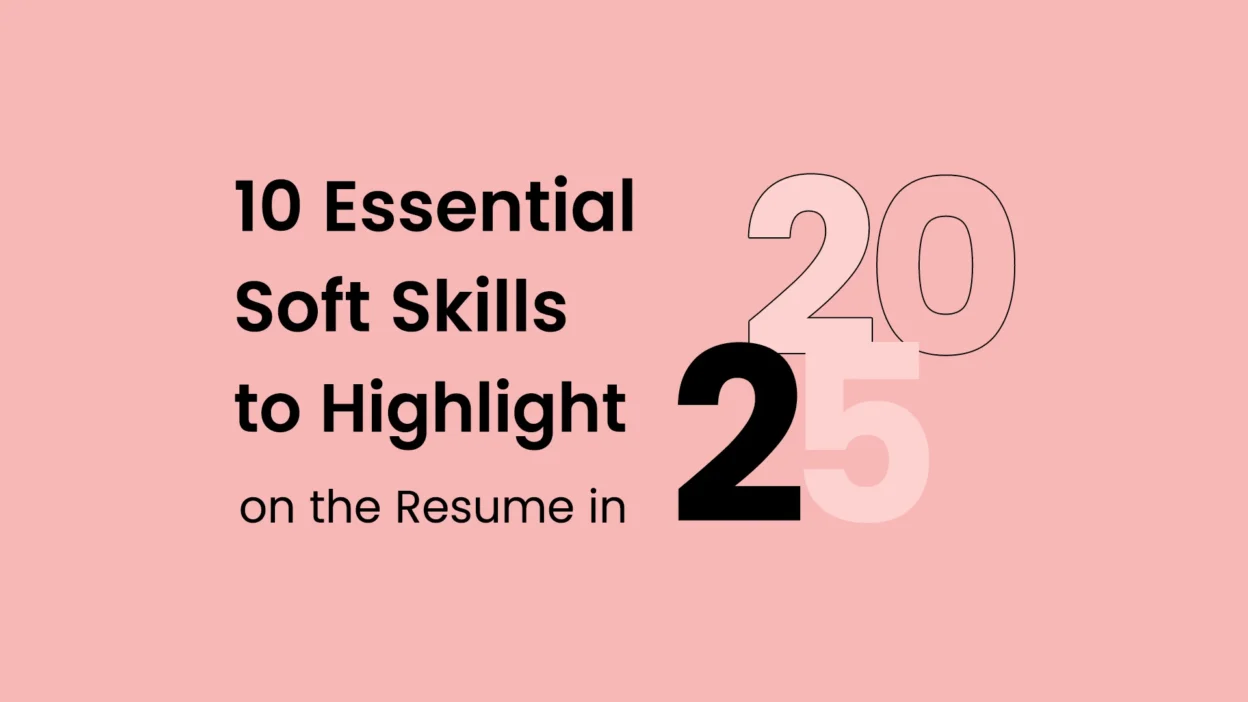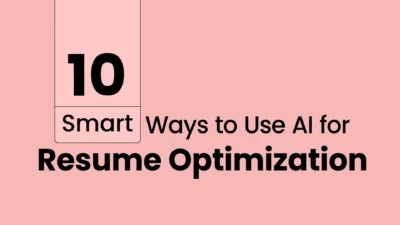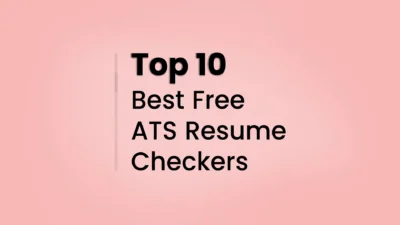Think about the last time you looked for work. Did you focus mainly on listing your technical skills and experience? Great! But hiring managers want more than just hard skills in 2025. They want employees who have good soft skills for resumes to offer. These interpersonal skills for job applications are the skills that reveal how you behave, solve problems, and impact the working environment around you.
If you want to impress hiring managers, you have to reveal your interpersonal skills for job applications and show how they have enabled you to make a difference in your past workplaces. In today’s competitive market, tools like Magical Api can help you track, demonstrate, and improve these soft skills effectively. Let’s explore the 10 most wanted soft skills for a resume, why they matter, and how to make them apparent on your resume.
Table of Contents
What Are Soft Skills and Why Are They Important?
So soft skills for resume are really about how you do your work, not what you do. To put it another way: hard skills are the things you can list on your résumé, such as the ability to code or analyze data. Soft skills focus more on how you work with people, manage stress, and align with a company’s vibe. In fact, tools like Resume Parser can help highlight these qualities by efficiently identifying the key strengths in your résumé.
Employers want soft skills for resume because they go a long way toward showing how well you’ll work with people, cope with job pressures, and adapt to a company’s culture. As offices evolve with remote and hybrid arrangements today, collaboration, flexibility, and communication are more essential than ever.
Magical Resume Score
Discover everything you need to know about Magical Resume Score , how it evaluates your resume, and the various options available to enhance your job application and improve your chances of success.
Top 10 Soft Skills to Highlight on Your Resume in 2025
- Communication Skills: strong communication is always the key. Whether you’re writing an email, presenting an idea, or leading a meeting. Employers want the ones who can clearly talk about their thoughts, listen actively, and have effective conversations. Top communication skills for resumes include public speaking, writing effective emails, and persuasive writing.
- Team Work and Team Collaboration: Adjusting with others is important if you work or live at home. Teamwork and collaboration in resumes must reflect your working capacity with others, contribute, and cooperate for team goals. Don’t forget to mention the activities in which teamwork and collaboration were successful.
- Problem-Solving Skills: There will be problems in any workplace and employers look for people who can think, problem-solve, and come up with solutions. Explain how you faced a problem and solved it.
- Adaptability and Flexibility: The job market is constantly changing. Employers want professionals who can quickly learn to work with new tools, processes, and solve challenges. Show them you’re open to change and eager to learn.
- Time Management: It is also important that the recruiter guarantees that you are punctual as well as being able to handle prioritizing your tasks. If you have handled numerous projects or utilized productivity software, inform them in order to highlight good time management skills.
- Leadership and Decision-Making: Leadership isn’t just for managers. Knowing the priorities, solving problems, and guiding a project or team can show employers that you can take responsibility. So, don’t forget to add even small roles such as mentoring a newcomer to your resume. It can change the employers’ minds.
- Creativity and Innovation: Fresh ideas keep businesses competitive. If you’ve contributed creative solutions, improved a process, or designed an innovative campaign, make sure to write about it. You don’t have to include every detail, just mention the task and the numerical outcome and leave the rest for the interview session.
- Emotional Intelligence: Identifying others’ emotions helps with teamwork. If you are good at reducing conflicts (or not making new ones 😀), mentoring, or creating positive workplace cultures, point that out.
- Work Ethic and Responsibility: Being reliable and dedicated never goes unnoticed. Employers want those who take responsibility for their work and always do their best.
- Networking and Relationship Building: Good professional relationships can open doors. If you have found out about the job position due to your good networking or if you have been referred by a friend, make sure that stands out.
Read More: What Is a Resume?
Examples of Soft Skills by Industry
Different industries place importance on different soft skills for resume. Here’s what they seek:
- Technology & IT: Problem-solving, flexibility, teamwork, and communication.
- Healthcare: Emotional intelligence, teamwork, flexibility, and communication.
- Marketing & Sales: Creativity, persuasion, networking, and time management.
- Finance & Accounting: Attention to detail, problem-solving, time management, and integrity.
- Education: Patience, flexibility, leadership, and communication.
- Customer Service: Active listening, empathy, conflict resolution, and interpersonal skills.
Read More: Free Recruitment Software
Tips for Developing and Improving Your Soft Skills
If you think that there are some soft skills for resume that you need to improve, don’t panic. We have all been there. Some of us are still there! Learning soft skills for resume is an ongoing process. There are not so many people that can say we are done with improving our skills. Fortunately we are living in an era when soft skills for resume are easy to develop since there is lots of related content around this topic. Here are some suggestions:
- Practice Active Listening: Listen carefully to others before providing a response. This improves communication and teamwork.
- Seek Feedback: Ask managers or mentors for regular feedback on your soft skills for resume. It is better to determine which skill you are seeking feedback for.
- Take Online Courses: Websites like Coursera and LinkedIn Learning have good courses on leadership, communication, and adaptability.
- Join Team Activities: Engage in group work, networking activities, or mentorship activities to develop collaboration skills.
- Growth Mindset: Take challenges as opportunities to learn and not as obstacles. If everything runs smoothly, no one can learn.
- Reading Soft Skills Books: Reading books like “Leaders are made not born” and “Crucial Conversations” can light the first sparks in your head.
- Participate in Workshops: If training workshops on communication, leadership, and collaboration are provided by the company you are working for, don’t hesitate to take part in them.
Of course we have introduced some ways to improve yourself in this matter, a good mentor can always make things move faster.
Read More: Resume for Internship
Soft Skills vs. Hard Skills: Understanding the Difference
It’s important to balance both soft skills for resumes and hard skills. Here’s how they compare:
| Aspect | Soft Skills | Hard Skills |
| Definition | Personal attributes that affect workplace interactions | Specific, teachable abilities |
| Examples | Communication, teamwork, leadership | Coding, foreign language, data analysis |
| Measurement | Harder to quantify; demonstrated through behavior | Easily measurable and tested |
A well-rounded resume should include both. For example, if you’re a software engineer, highlight your coding expertise (hard skill) alongside your ability to work in agile teams (soft skill).
Common Mistakes to Avoid When Listing Soft Skills
We talked about everything you SHOULD do regarding soft skills. And now here are the most common mistakes job candidates make when listing soft skills for resume:
- Being Too Vague: Simply saying you have “good communication skills” doesn’t cut it. Be specific.
- Listing Too Many: Emphasize 5-7 soft skills that are most important for that job position instead of overwhelming the reader with too lengthy a list.
- Not Showing Evidence: Instead of simply listing the skill, describe how and when you effectively used it.
- Overshooting Industry Relevance: Make your soft skills for resume job-specific by making your resume bespoke.
- Not Showing Them in Work Experience: Don’t just put them under the skills section. Make them a part of your work descriptions.
- Abusing Buzzwords: Instead of putting “team player” or “good communicator” with nothing to back it up, demonstrate it through specific examples.
Soft skills the key to professional success
Soft skills are no longer a nice-to-have. They are now the key to professional success. Hiring managers in 2025 expect candidates who put emphasis on fantastic interpersonal skills in job postings, shine with collaboration and teamwork in resumes, and demonstrate top communication skills for resumes.
By identifying which soft skills for your resume matter most in your industry, continuously refining them, and presenting them strategically, you’ll significantly boost your chances of landing your dream job. Moreover, leveraging our Resume Score tool can help you gauge your resume’s effectiveness and uncover further opportunities for improvement.
Take a few days to reflect on yourself, enhance lesser skill sets where appropriate, and get your resume presenting the positives at the top of the page. Ultimately, the technical will get you seated in that chair, but it is communication, flexibility, and willingness to be a team player that’s going to get you ahead.





